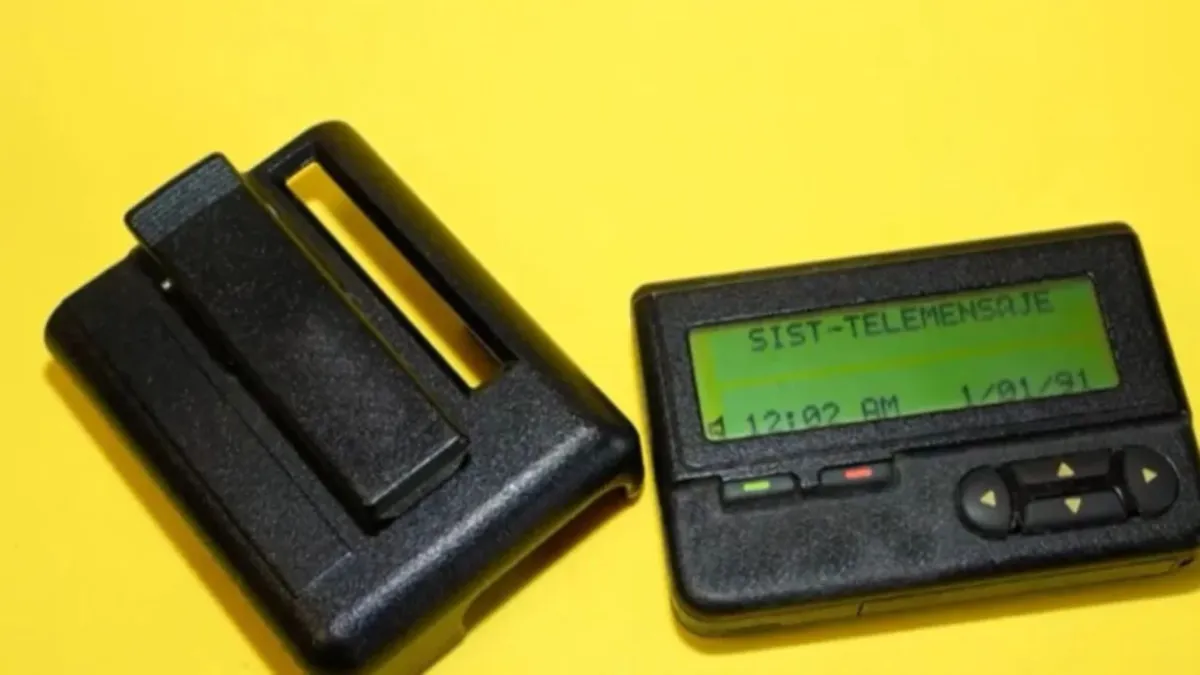
A second wave of device explosions killed 14 people and wounded more than 450 on Wednesday in Hezbollah strongholds in Lebanon, officials said, fueling fears of an all-out war with Israel.
>>> You can also read: Beepers that exploded during Hezbollah attack had explosives, investigation finds
A source close to Hezbollah said walkie-talkies used by its members exploded in its Beirut stronghold, and state media reported Similar explosions were reported in southern and eastern Lebanon.
AFPTV footage showed people running for cover as an explosion occurred during a funeral for Hezbollah militants in southern Beirut in the afternoon.
Fourteen people were killed and more than 450 wounded in the latest attacks, the Health Ministry said, who also described the attacked devices as walkie-talkies.
The incident occurred a day after the simultaneous explosion of hundreds of tracking devices used by Hezbollah killed 12 people, including two children, and injured another 2,800 across Lebanon in an unprecedented attack blamed on Israel.
There was no comment from Israel, which only hours before Tuesday’s attacks had announced it was broadening the aims of its war with Hamas in Gaza. to include its fight against the Palestinian group’s ally Hezbollah.
“The center of gravity is shifting to the north,” Israeli Defense Minister Yoav Gallant said during a visit to an air base on Wednesday. “We are at the beginning of a new phase of the war.”
Israeli officials have remained silent about the explosions, which appeared on television news and dominated newspaper headlines.
Amos Harel of the leftist Haaretz newspaper said the explosions of pagers and walkie-talkies had put “Israel and Hezbollah on the brink of all-out war.”
The White House warned all parties against “escalation of any kind.”
“We do not believe that the way to resolve the current crisis situation is through additional military operations,” US National Security Council spokesman John Kirby told reporters.
Iran-backed Hezbollah has exchanged cross-border fire almost daily with Israeli forces since Palestinian militants attacked Israel on October 7, triggering the war in Gaza.
Lebanese Foreign Minister Abdallah Bou Habib warned that the “blatant attack on Lebanon’s sovereignty and security” was a dangerous development that could “signal a wider war.”
Hezbollah said Israel was “fully responsible for this criminal aggression” and vowed revenge.
The influx of so many victims suddenly overwhelmed hospitals in Hezbollah strongholds.
At a Beirut hospital, Dr Joelle Khadra said: “The injuries were mainly to the eyes and hands, with amputated fingers, shrapnel in the eyes; some people lost their sight.”
A doctor at another hospital in the Lebanese capital said he had worked all night and that The injuries were “out of this world; I’d never seen anything like it.”
Heavy blow in Lebanon
Analysts said the agents had likely placed explosives in the pagers before they were handed over to Hezbollah.
“It is almost certain that a small plastic explosive was hidden next to the battery. to be able to detonate it remotely by means of a call or a pager,” said Charles Lister of the Middle East Institute.
Among the dead was the 10-year-old daughter of a Hezbollah member, who was killed in Lebanon’s eastern Bekaa Valley when her father’s pager exploded, the family and a source close to the group said.
The attack dealt a major blow to Hezbollah, which already had concerns about the security of its communications after losing several key commanders in targeted airstrikes in recent months.
Preliminary results of a Lebanese investigation into The blasts found that the pagers were booby-trapped, a security official said.
“The data indicates that the devices were pre-programmed to detonate and contained explosive materials placed next to the battery,” the official said, requesting anonymity to discuss sensitive matters.
A source close to Hezbollah, who asked not to be identified, said that The pagers were “recently imported” and appeared to have been “sabotaged at the source.”
After The New York Times reported that the pagers had been ordered from Taiwanese manufacturer Gold Apollo, the company said they had been produced by its Hungarian partner BAC Consulting KFT.
A government spokesman in Budapest said the company was “a commercial intermediary, with no manufacturing or operating site in Hungary.”
As fears of a regional conflagration re-emerged nearly a year after the start of the Gaza war, Lufthansa and Air France announced the suspension of flights to Tel Aviv, Tehran and Beirut until Thursday.
“Extremely volatile”
Since October, incessant exchanges of fire between Israeli troops and Hezbollah have killed hundreds of people, mostly fighters in Lebanon, with dozens, including soldiers, on the Israeli side.
They have also forced tens of thousands of people on both sides of the border to flee their homes.
The United Nations’ top human rights official, Volker Turk, said Tuesday’s attack occurred at an “extremely volatile time” and called the explosions “shocking” and their impact on civilians “unacceptable.”
UN chief Antonio Guterres urged governments “not to weaponize civilian objects.”
Senior diplomats from the United States, Britain, Germany, France and Italy will meet in Paris on Thursday to discuss rising tensions in the Middle East, sources said, ahead of a UN Security Council meeting planned for Friday.
The October 7 attack that sparked the war caused the deaths of 1,205 people, Most of them civilians on the Israeli side, according to an AFP count based on official Israeli figures that include hostages killed in captivity.
Of the 251 hostages taken by militants, 97 remain held in Gaza, including 33 who the Israeli military says are dead.
>>> You can also read: What are the walkie talkies that exploded in Lebanon, killing nine people?
Source: https://www.noticiascaracol.com/mundo/nuevas-explosiones-de-walkie-talkies-en-libano-dejan-14-muertos-y-450-heridos-cb20


